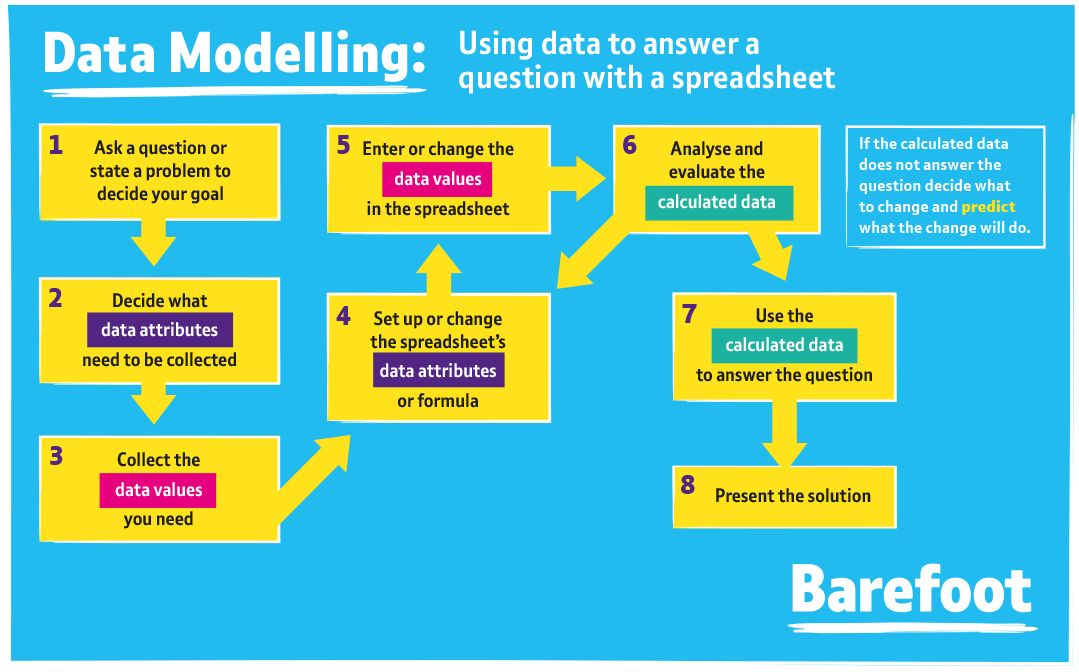Data science and data skills in the primary school classroom
24 October 2019

‘Data science’ is a term being used more and more frequently in academia and industry, but a Royal Society report, Dynamics of Data Science Skills, suggests that data science skills are also an important area that should be discussed in education, and that data skills need to be built into a school’s curriculum. This includes both at a primary and secondary school level, with support for teachers and curriculum development to ensure that we are supporting young people to thrive in the data-rich world we live in. With this in mind, the Royal Society held a ‘Data Skills for All’ workshop, hosted by STEM Learning.
Data literacy among children in primary school
As a primary school teacher, I find that the idea of ‘data’ and how to teach this to the children we work with is not always clear, so to aid discussions about data skills, or data literacy, and what this means, Jane Waite shared Grillenberger and Romeike’s (2018) matrix of competencies and processes for data literacy.
The core ideas I took from this model were the range of skills and understanding required under the term ‘data skills’ for children in primary school:
- Can the children plan what data they need to answer their question? This includes anything from designing questionnaires with appropriate multiple choice options, to knowing what equipment they could use.
- Can the children collect data? This includes recognising different ways that they can collect data in person or online, to recording the data they collect in tables.
- Can the children analyse data? This includes recognising patterns and trends from the data they have, to being able to use that data to answer questions.
- Can the children present data? This includes anything from graphs, to infographics, to being able to ‘read’ graphs of other people’s data.
- Can the children discuss data that they should/shouldn’t give/request? This includes recognising how data can be used, and discussing the ethics of whether we want the data to be used in this way.
Teaching data skills in primary school
The consideration of the range of skills also raised the question of which school ‘subject’ data skills sit in. Statistics within Maths? Working Scientifically within Science? Ethics and Online Safety within PSHE? Or Computing, in which the national curriculum states that children should ‘select, use and combine a variety of software [...] including collecting, analysing, evaluating and presenting data and information’?
A further report by the Royal Society, The Integration of Data Science in the Primary and Secondary Curriculum, identifies the extent to which data science skills exist in Maths, Computing, Science, and Humanities, and shows that data science skills are being taught (Pittard, 2018). It is clear that data skills are already prevalent throughout the primary national curriculum, however, non-specialist teachers have to manage a wide range of content, and may not be aware of the links across subjects, or what progression in data skills looks like.
During the ‘Data Skills for All’ workshop, we started to consider how we could support primary teachers in overcoming the barriers to data skills for all.
Led by Jane Waite, the Primary team suggested simple, small actions that could start to be implemented straight away, and larger solutions that would need the support of wider organisations to be implemented. Here is a selection of those actions:
What can teachers do to get started straight away?
- Tiny tasks: These were simple data activities that you could give your students as a break between lessons, during registration, or as a starter activity in one of your other lessons. To support the development of children’s understanding of the quality of data, can the children be ‘Data Detectives’ and explain whether or not a ‘key fact’ that you’ve shared is true or not? How would they know? What should they consider? This could be a ‘fact’ from a newspaper article, or simply something that you have made up!
- Discuss data: You could discuss with the children you teach what data they share when they sign up to a website/online game, why people create quizzes such as ‘What unicorn are you?’, or even how ‘free-to-play’ games make money. Equally, you should raise the importance of data skills with your leadership team as part of their responsibility to safeguard children who may not recognise the data that they’re sharing.
What larger solutions need support from wider organisations?
- Software that can make ‘big data’ data sets more accessible to younger children: Children love data, whether it’s data about which animals are the tallest, or data about how many Instagram posts have been published in the last second, but a lot of the existing data sets require teachers to spend a lot of time finding the data and putting it into a learner-friendly format.
- Translational work to show where data skills fit into all of the relevant subjects, and how the students’ understanding should progress as they get older: Whilst there are references to data skills in many of the primary curriculum areas, it’s difficult for a class teacher to link all of these together and to understand what the appropriate pitch is for each year group. A piece of work mapping this journey would improve teachers’ understanding of the data skills that are already taught as part of the curriculum.
Whether we’re teaching data skills in primary schools or not, children are part of (and contributing to!) the world of data that we live in.
Read more
- Dynamics of Data Science Skills by the Royal Society
- The Integration of Data Science in the Primary and Secondary Curriculum by the Royal Society
- Defining Data Literacy by Oliver Quinlan (Hello World Issue 9, p.44), in which Quinlan discusses Grillenberger and Romeike’s Data Literacy Competency Model
What can you do?
- Speak to the children in your classes about data this week. How good are they at being Data Detectives?
- Barefoot have created an activity to introduce data modelling, Pizza Party, which includes a data modelling life cycle. Have a look at the cycle and try it out in other data-related activities.
About the authors
 Sway Grantham is a Primary Learning Manager at the Raspberry Pi Foundation. |
 Jane Waite, is a Teaching Fellow and Researcher at Queen Mary University of London. |